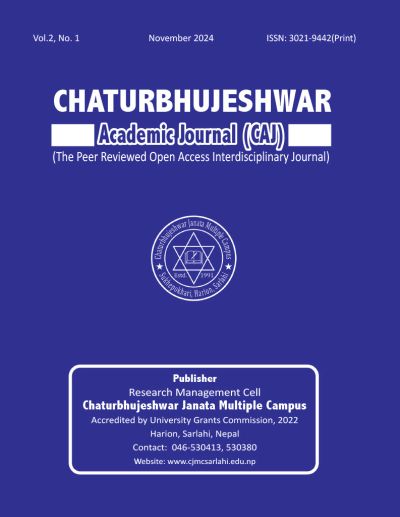Macroeconomic Effects of Fiscal Deficits on GDP Per Capita of Nepalese Economy
DOI:
https://doi.org/10.3126/caj.v2i1.72215Keywords:
Fiscal deficit, Inflation, Gross capital formation, Interest rate, Final consumption expenditure, ARDL ModelAbstract
This study investigates the macroeconomic effects of fiscal deficit on Nepalese’s GDP per Capita for 2001/02 to 2022/23 while considering inflation rate, interest rate, final consumption expenditure, and gross fixed capital formation as a control variable. The time series analysis was done by collecting data from secondary sources. The ARDL model was employed for the co-integration test; the Granger causality test was performed to check the direct and indirect relationship of the fiscal deficit with the GDP per Capita. The finding reveals that, in the long run, fiscal deficit and GDP per Capita have a positive relationship. Specifically, a 1% increase in the fiscal deficit increases GDP per Capita by $116.57; however, the relationship is statistically insignificant in the short run. The Granger causality test shows that fiscal deficit affects the GDP per Capita directly and through the transmission mechanism. This relationship suggests the role of government in the Nepalese economy, aligning with the Keynes approach. The findings of this research have important implications for the budget formulation process, coordination of fiscal and monetary policy, and further investigation in fiscal management.




